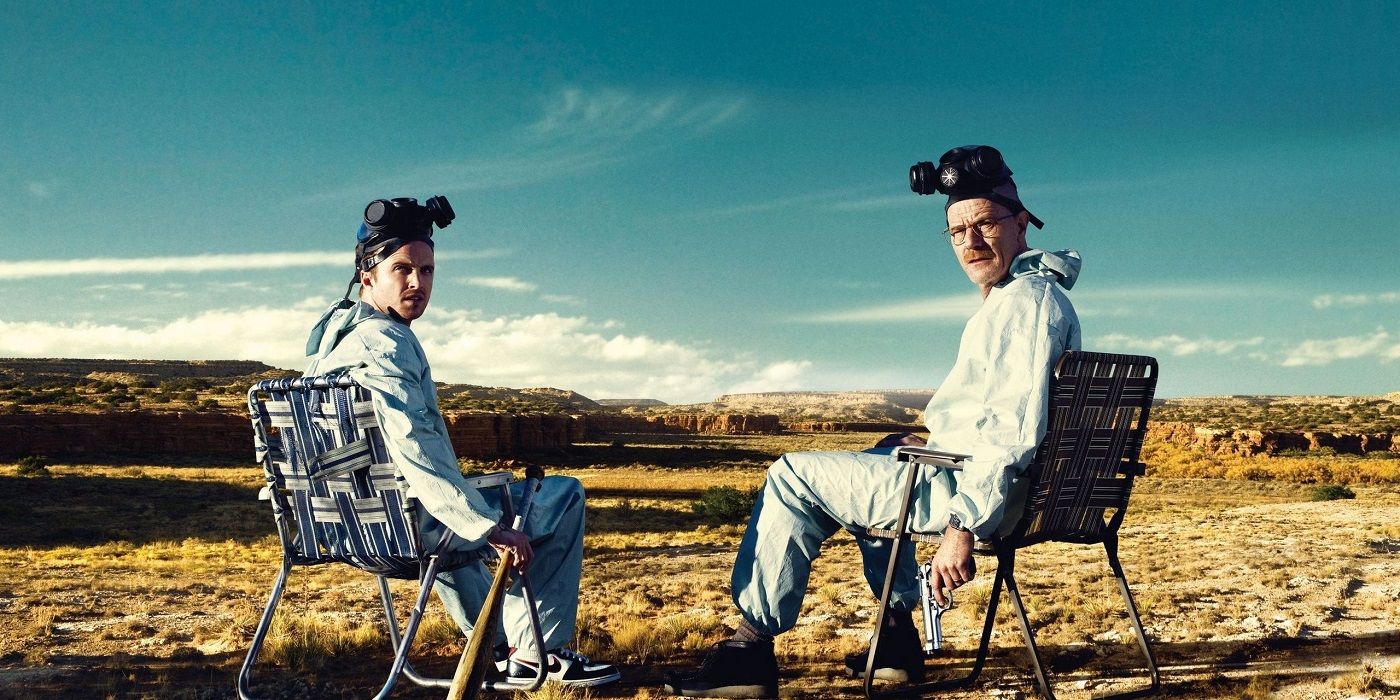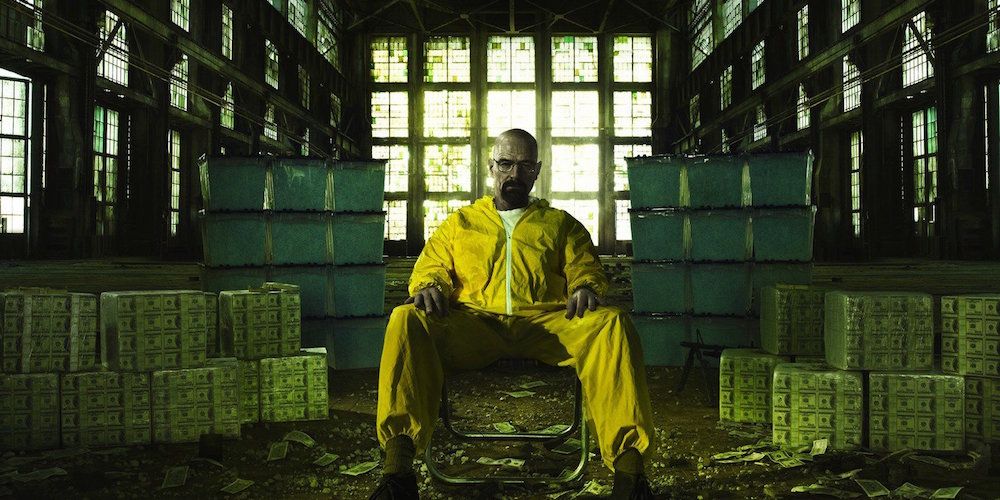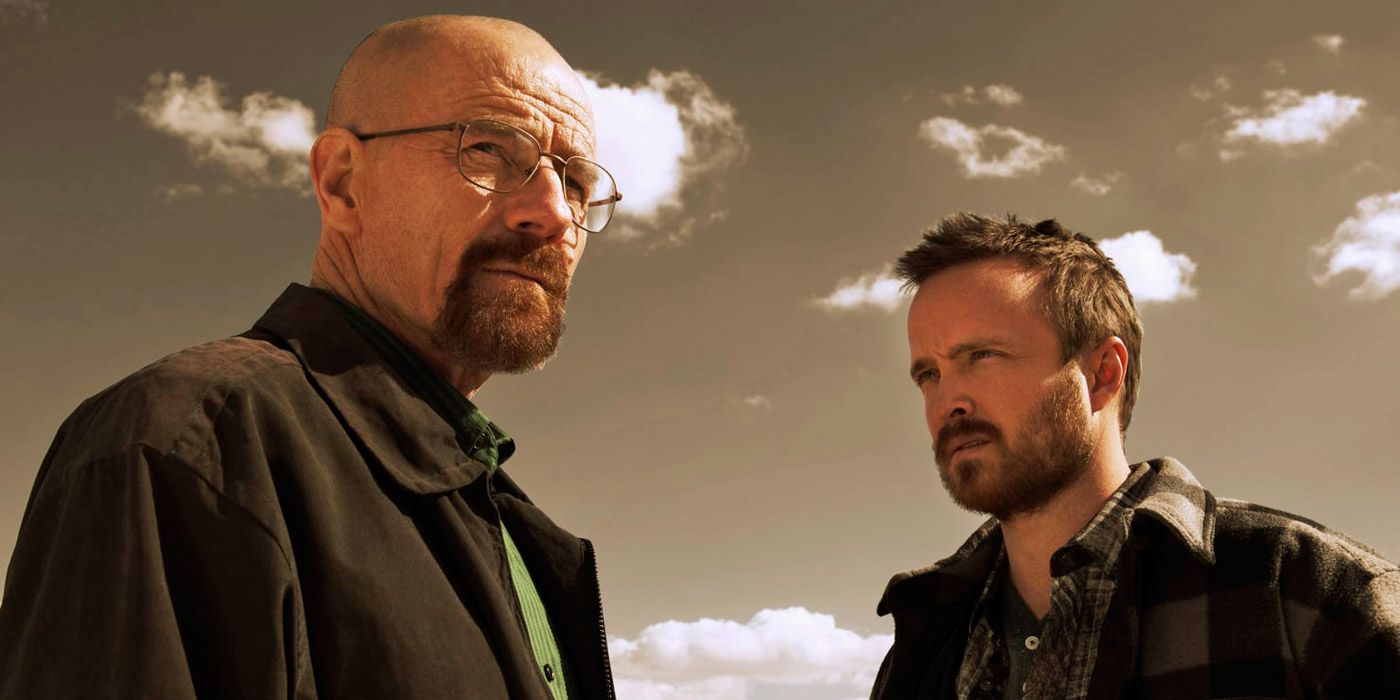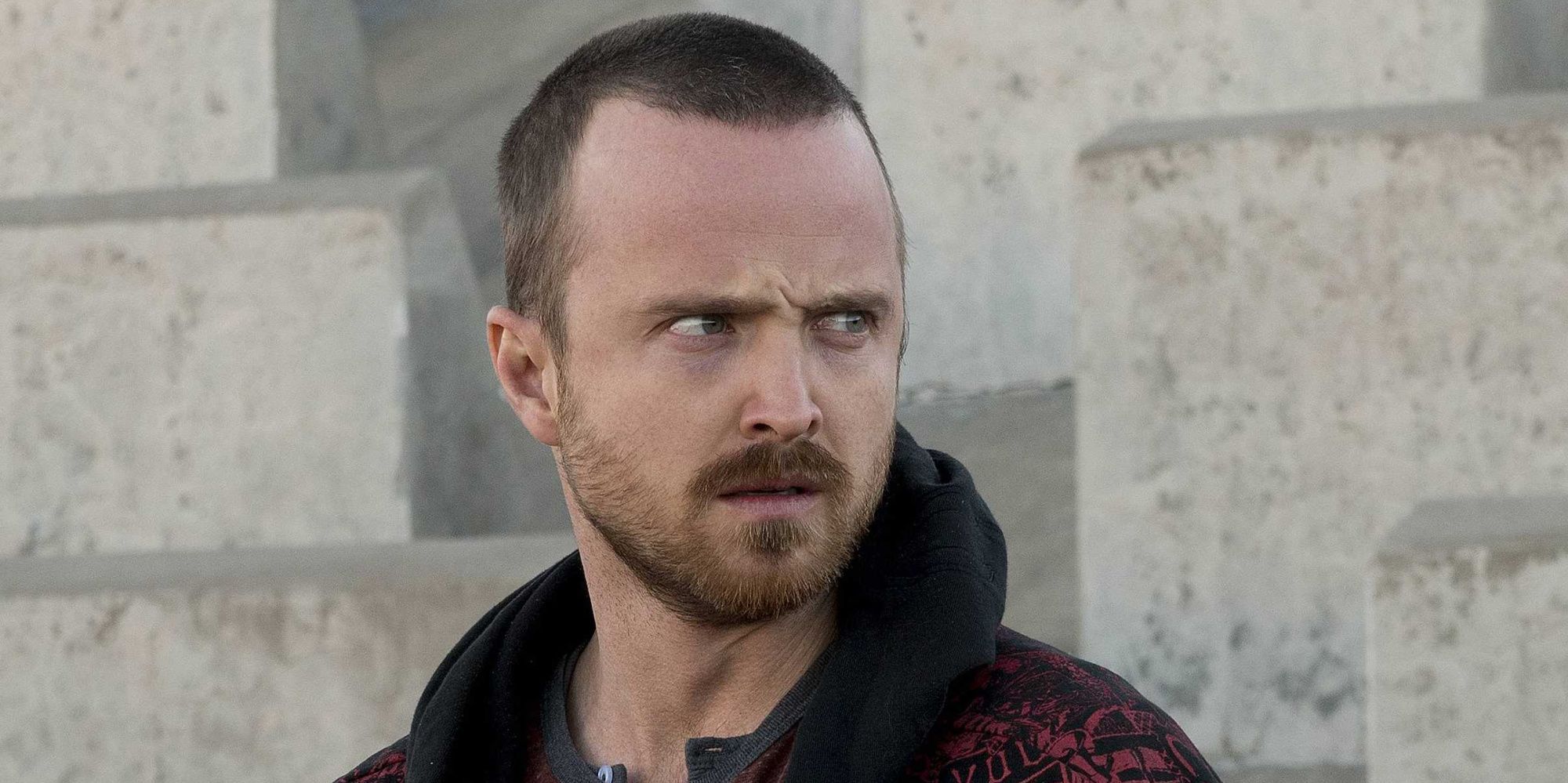AMC's Breaking Bad has been widely lauded as one of the greatest television dramas of all time. Throughout its five and a half year run on the small screen, the series racked up an impressive 110 industry awards and 262 nominations, eventually spawning a spin-off series, entitled Better Call Saul, which is set to continue with a fifth season in 2020.
Given that Breaking Bad has undoubtedly been one of the most popular series in recent memory, it's no surprise that creator Vince Gilligan is revisiting the series with a new film, set to premiere on Netflix on Oct. 11. El Camino: A Breaking Bad Story will pick up where the series left off, this time focusing on Aaron Paul's Jesse Pinkman after his escape from captivity in the series finale.
The series of Breaking Bad tells the story of Bryan Cranston's Walter White, a middling high school chemistry teacher working two jobs to provide for his pregnant wife and disabled son, who is forced to manufacture crystal meth as a means of financially providing for his family following a cancer diagnosis. Throughout the series, audiences see Walter turn into the hardened criminal Heisenberg, who seeks to become the kingpin in the local drug trade.
Gilligan has characterized the series as examining the transformation of a guy from "a soft-spoken Mr. Chips to Scarface." However, could the series have benefited from focusing on Jesse Pinkman as the central character from the beginning, instead of Walter White? While Breaking Bad already holds the Guinness World Record as the most critically acclaimed show of all time, is it possible that it could have been even better received?
There's no doubt that Breaking Bad is more than deserving of many of its accolades. The show features impeccable acting, most notably from its two leads in Cranston and Paul, while also being extremely well written and directed throughout. It is, however, in its premise where the show suffers. The idea of a high school chemistry teacher having to resort to cooking meth to pay his medical bills upon receiving a cancer diagnosis is in itself a scathing indictment of the American medical system, but it's also potentially offensive to those who've dealt with cancer or lost family members or close friends to cancer.
RELATED: El Camino: A Breaking Bad Movie Teaser Trailer Questions Skinny Pete
From an outside perspective, the show can be seen as almost glorifying the manufacturing of illicit narcotics as a means to obtain better medical treatment. And an illicit narcotic which, no less, has no medicinal benefits beyond being a second-line treatment for ADHD and obesity. Even then, methamphetamine was rarely ever prescribed by medical practitioners due to concerns over its neurotoxicity.
What furthers the potentially offensive nature of the premise is that Walter White's cancer diagnosis is almost entirely irrelevant to his arc throughout the series. It is simply used as the inciting incident that sets Walt down the path to becoming Heisenberg while drumming up sympathy for the character, none of which remains whatsoever by series end. While an inciting incident is a rather key element to any story, the use of the cancer diagnosis to trigger Walt's transformation is later shown to be completely and utterly unnecessary.
Throughout the series, Walt's background is further revealed, demonstrating more than enough substance to already explain his transformation into Heisenberg without the cancer diagnosis entirely. Walt is a gifted chemist who founded Gray Matter Technologies with his friend Elliott Schwartz and his then-girlfriend Gretchen, who later becomes married to Elliott, before abruptly selling his shares in the company for $5,000. As the company went on to make a fortune on the backs of his research, Walt is left working as a high school chemistry teacher, while working night shifts at a car wash barely getting by to provide for his pregnant wife, Skyler, and their disabled son, Walter Jr.
Walt is already more than aware that his skills as a chemist could garner him some serious cash in the illegal drug trade, demonstrated by his relationship with his brother-in-law, Hank Schrader, a DEA agent. With his background as a bitter and depressed middle-aged man with some inside insight into the local drug trade, there exists a plethora of potential inciting incidents that could have been used and worked just as well, if not better than the cancer diagnosis.
Another potential way that Breaking Bad could have handled the use of Walt's cancer diagnosis as the inciting incident, however, was if the show had instead presented him as a gifted botanist who turns to is made to grow cannabis to pay his medical bills. Though many states and countries have now legalized or decriminalized, the use of recreational marijuana, medicinal marijuana has been prescribed to mitigate the side effects of chemotherapy for many years. In many cultures, the use of marijuana for medicinal purposes can even be traced back thousands of years. This change would have allowed Breaking Bad to maintain its narrative structure while providing Walt with the opportunity to self-medicate with what would have undoubtedly been the best strain of cannabis around.
That being said, the best thing the show could have possibly done to improve its premise is to have focused on Jesse Pinkman instead. Viewers need not look further than the series finale to understand why.
In the final moments of "Felina," Walt gets his revenge on Jack for stealing most of his money and killing Hank, freeing Jesse in the process. What comes next for both characters can be seen as almost utopic moments for each. Jesse drives off, crying gleefully, as he's finally free of this life, though maybe not of the consequences. Walt lingers and fondly admires the lab Jesse was forced to work in before collapsing and presumably dying as police arrive. The issue with Walt receiving a utopic ending is that it was not deserved whatsoever. While Walt began the series as a sympathetic protagonist, he ended it as its true antagonist. Providing him with what amounted to a happy ending was in no way deserved. Despite all the terrible things Walt has done, he doesn't have to face the repercussions of anything he's done.
As the series wraps up, Walt, despite being rebuked by his son when he tries to send him money, is able to obtain his revenge on Gretchen and Elliott by forcing them to set up a trust through which Walt's remaining money will be given to his son on his 18th birthday. He successfully poisons Lydia and obtains his revenge on Jack and his men, and dies before he could be caught by police. In a series that supposedly tackles moral consequences as one of its thematic elements, and a series in which the creator says that the main lesson to be gleaned is that "actions have consequences," Walt's ending only serves to do the exact opposite. Centering the series on Jesse, however, may have achieved an ending that satisfies that thematic element, which audiences may just see when El Camino premieres on Netflix.
It would have also transformed the series from one that can be seen as glorifying the manufacturing of illicit narcotics to one that examines addiction through the eyes of a once-privileged kid, who's involvement with drugs have left him estranged from his family, before being manipulated for personal gain at his expense by someone who once taught him in high school. Centering the series on Jesse would have allowed Walt to shine as the true villain that he is while providing a tale of redemption for the show's main moral compass.
Jesse's utopic ending in Breaking Bad was more than deserved and it's one that could have been all the more powerful had the show centered on him from the start.
Written and directed by Breaking Bad creator Vince Gilligan, El Camino: A Breaking Bad Movie stars Aaron Paul. The film arrives on Netflix Oct. 11, with a later release scheduled for AMC.





